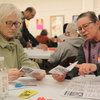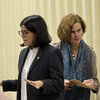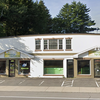GHS alumna wins Muller Award
Sarah Slack is one of just two teachers in New York City — the city has 75,000 teachers in 1,800 public schools — to win the Muller Award this year.
The award carries a $20,000 honorarium for the teacher and a $5,000 award for the school or organization of its nominator.
Slack, who grew up in Guilderland, was nominated by Meredith McDermott, director of sustainability in the city’s education department.
McDermott wrote in her letter nominating Slack that they had met as founding members of the New York City Climate and Resilience Education Task Force.
She describes Slack as being “in the top tier of most proficient, prolific, and talented educators actively working in schools today” and cites many of her projects. This includes being “the only middle school teacher ever accepted to work as part of a NASA research team to examine the extent and variability of urban heat islands in NYC.”
In 2020, The Enterprise did a podcast with Slack, centering on her trip to Antarctica where she worked with professors and graduate students to map the seafloor under the edge of the Thwaites Glacier. Called the Doomsday Glacier, Thwaites, which is about the size of Florida, is melting more than other glaciers because of warm currents below.
“It is a stopper, holding back four other glaciers,” said Slack. If Thwaites were to melt, sea levels would rise two feet, said Slack, and, if other nearby glaciers melted, too, sea levels could rise another catastrophic 13 feet. Throughout her journey, Slack stayed in touch with her eighth-grade students through a blog and relished answering their questions.
Slack, who teaches eighth-grade science, technology, engineering, and math, known as STEM, at the Montauk School in Brooklyn, said that science teachers who taught her at Farnsworth Middle School and Guilderland High School shaped her into the explorer and teacher she became. “Our job is not just what we talk about in the classroom,” she said of being a teacher but, rather, modeling “who we are as people.”
Slack graduated from Guilderland High School in 1993, got a bachelor’s degree from Kalamazoo in Michigan, and went on for a master’s degree in plant biology from the University of Minnesota.
She worked as the main educator on Pete Seeger’s sloop, the Clearwater, which plied the Hudson River, raising consciousness about environmental issues.
Slack then worked for the Audubon Society before settling on teaching for a career, something her mother, Guilderland School Board member Judy Slack, said was always meant to be.
The Muller Award recipients — one math teacher and one science teacher — are chosen each year from among New York City’s MƒA, or Master Teachers for math and science.
MƒA teachers receive up to $60,000 in stipends over four years to participate in and lead professional growth and enrichment opportunities. MƒA Board member Peter Muller, founder of an investment firm, pays for the award that is named after him.



